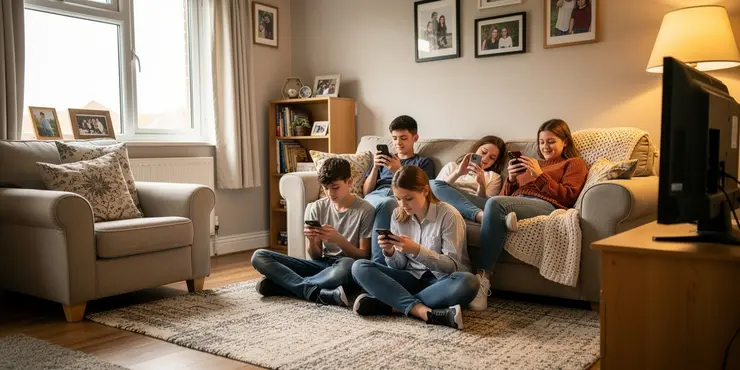
Find Help
More Items From Ergsy search
-
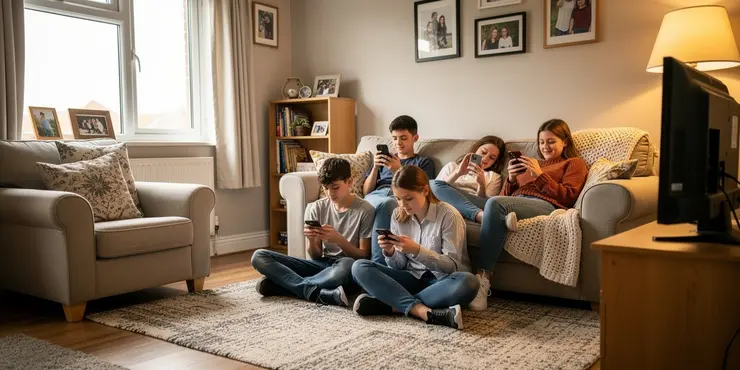
What demographic showed the most significant change in sleep quality due to screen time?
Relevance: 100%
-
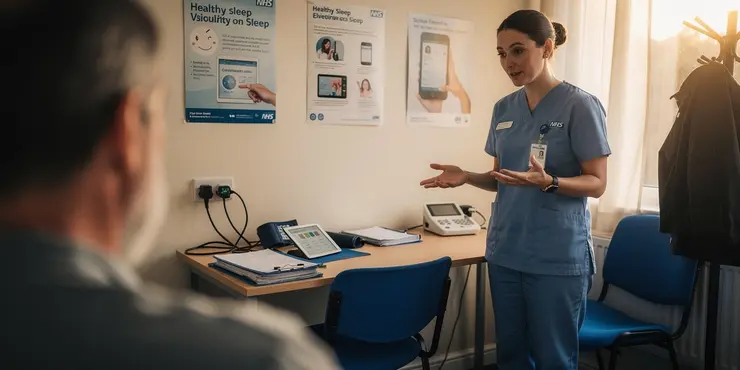
What is the main finding of the study linking screen time to sleep quality?
Relevance: 85%
-
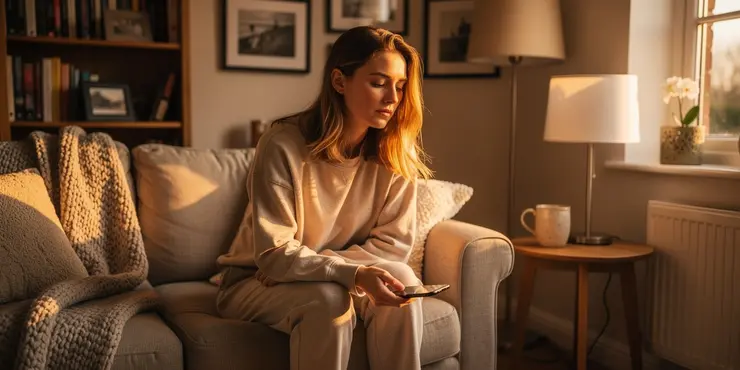
Can reducing screen time improve sleep quality?
Relevance: 84%
-
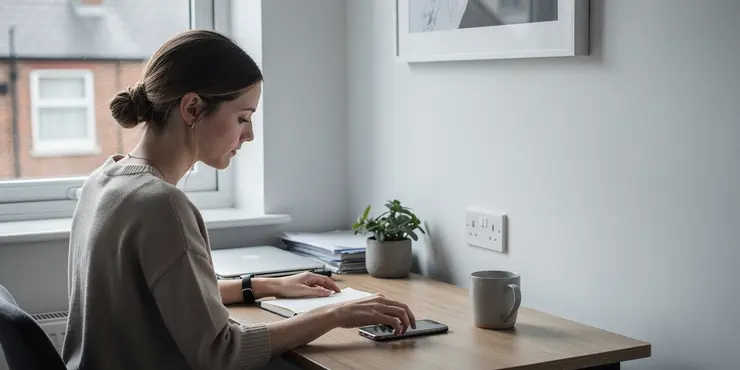
How does screen time affect sleep quality?
Relevance: 84%
-
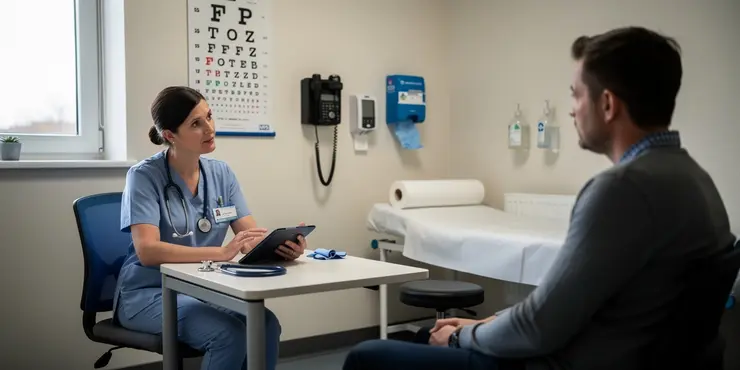
Study Shows Link Between Screen Time and Sleep Quality
Relevance: 84%
-
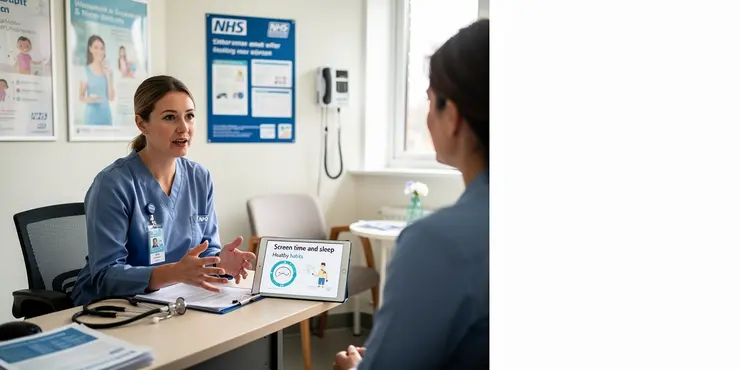
Does screen time impact REM sleep?
Relevance: 70%
-
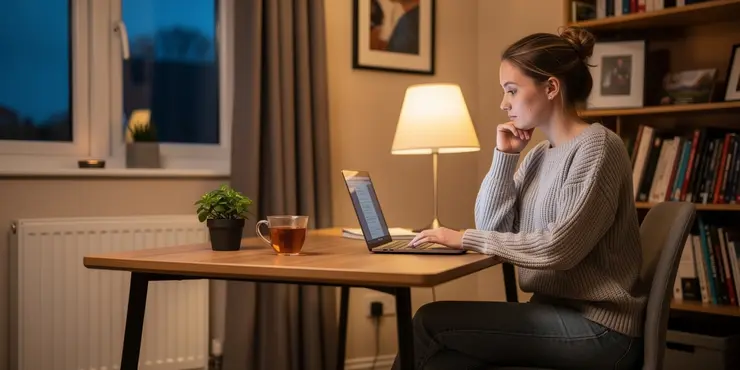
Is blue light from screens a factor in affecting sleep quality?
Relevance: 67%
-
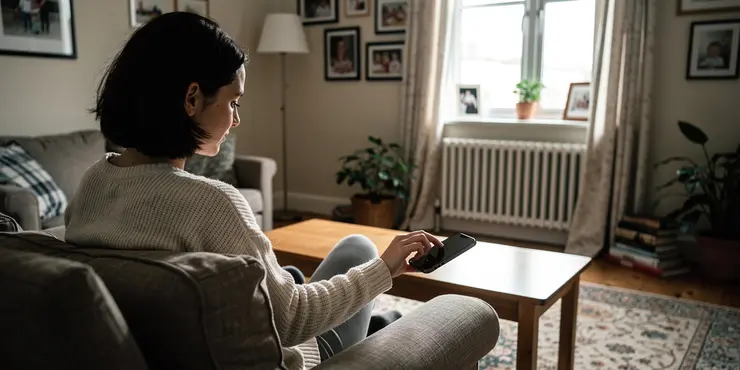
Are there any screen time guidelines recommended for improving sleep?
Relevance: 66%
-
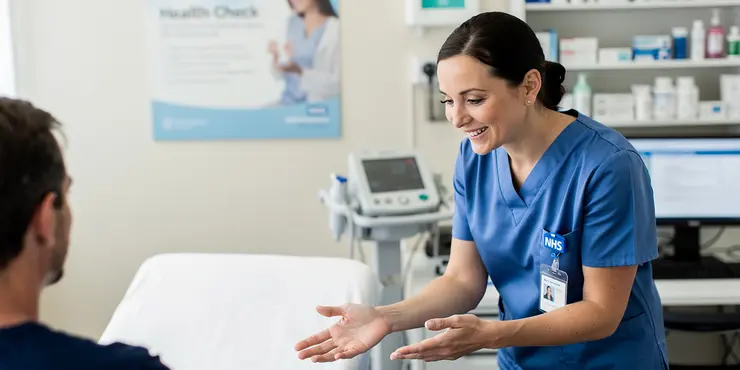
Is there a difference in screen time impact on sleep between weekdays and weekends?
Relevance: 66%
-
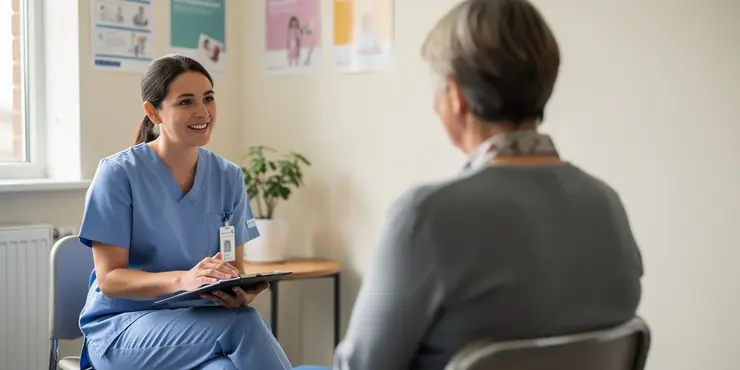
Does screen time affect both sleep onset and sleep maintenance?
Relevance: 66%
-
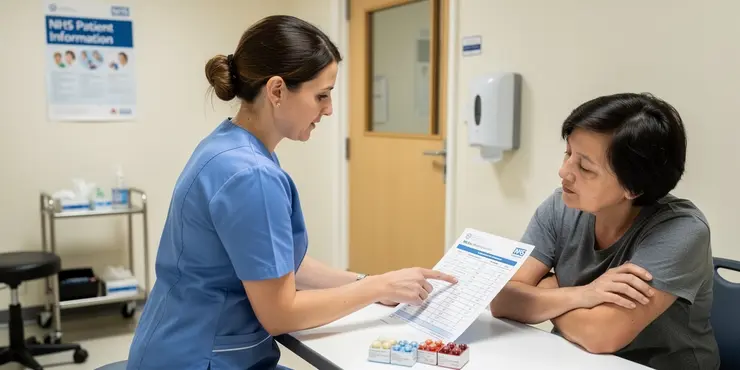
What are some tips for reducing screen time to improve sleep?
Relevance: 64%
-
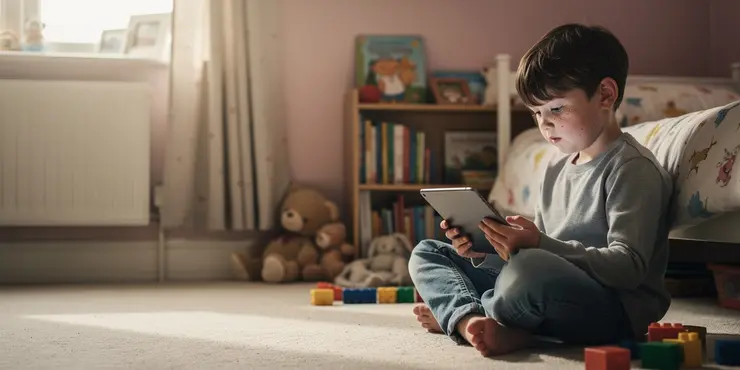
Are children more affected by screen time in relation to sleep than adults?
Relevance: 63%
-
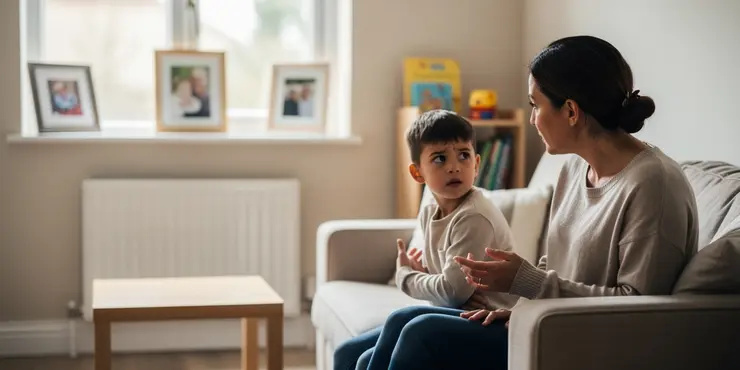
What is the role of parental monitoring in children's screen time and sleep?
Relevance: 58%
-
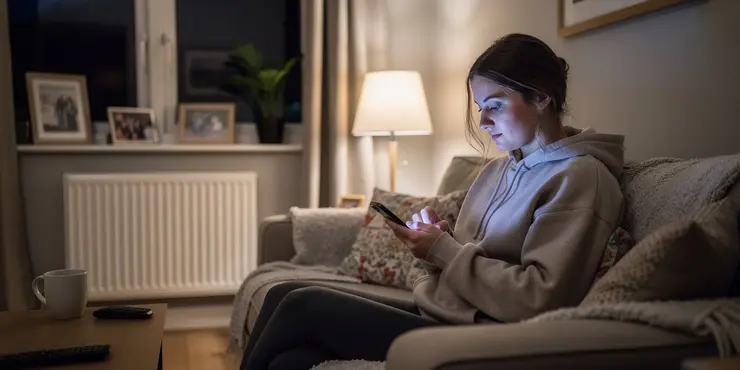
What are some long-term effects of poor sleep quality linked to screen time?
Relevance: 56%
-
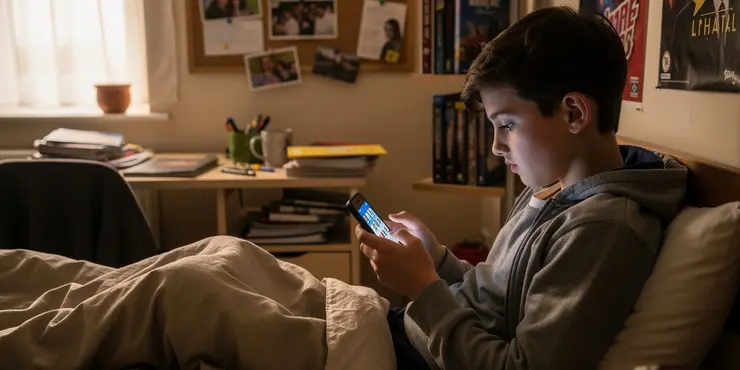
How does screen time before bed specifically affect adolescents?
Relevance: 53%
-
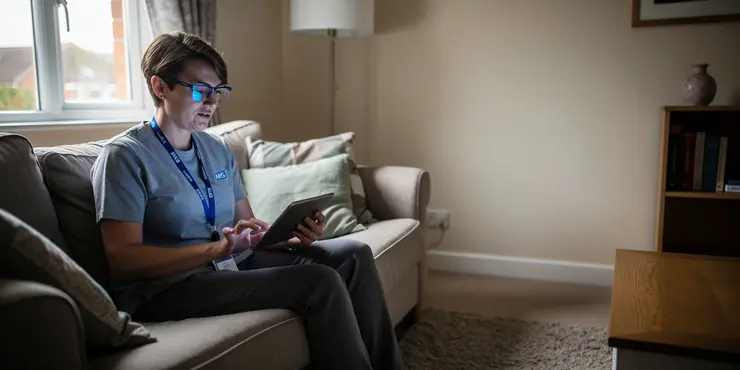
Do mitigation strategies like blue light glasses help improve sleep quality?
Relevance: 52%
-
How does sleep quality relate to menopause symptoms?
Relevance: 50%
-
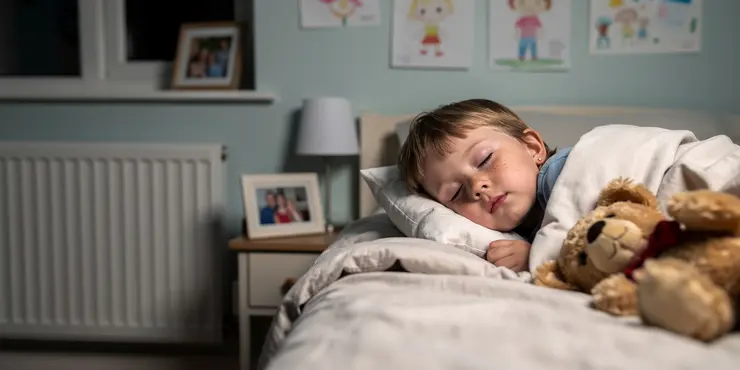
The Importance of Sleep for All Ages
Relevance: 38%
-
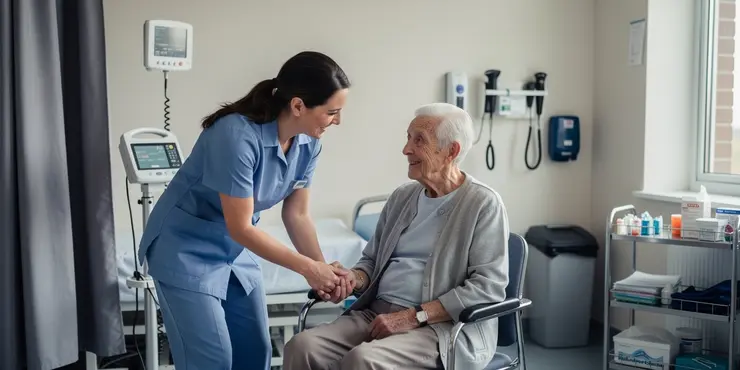
What demographic factors influence changes to the state pension age?
Relevance: 37%
-
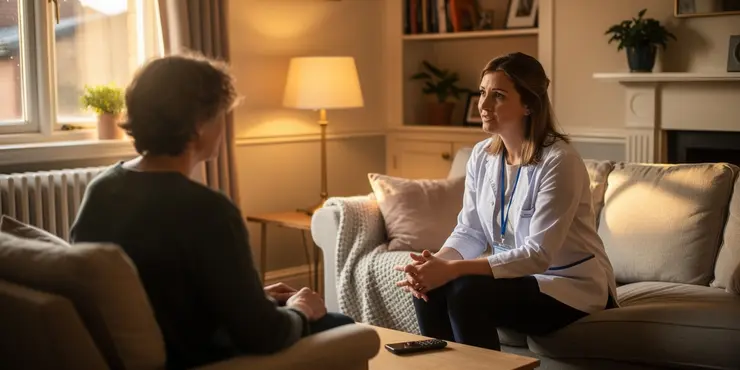
Top Tips to Help You Get a Good Nights Sleep
Relevance: 37%
-
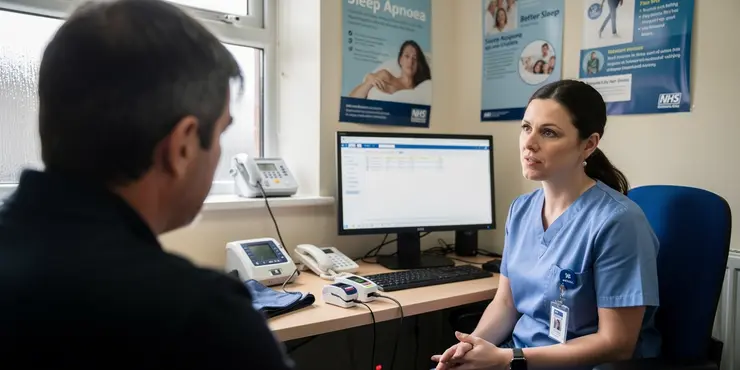
How common is sleep apnea?
Relevance: 35%
-
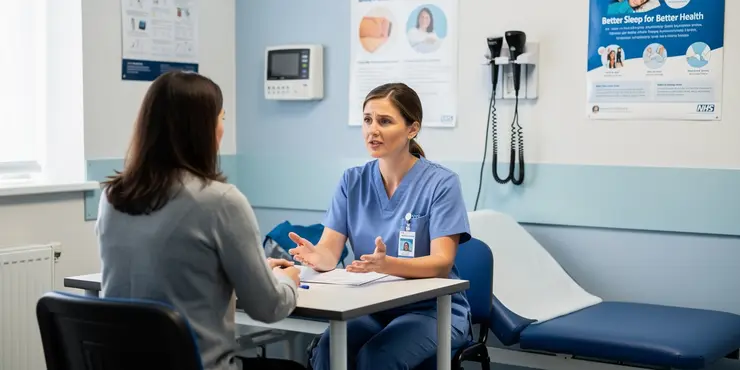
Can alcohol worsen sleep apnea?
Relevance: 33%
-
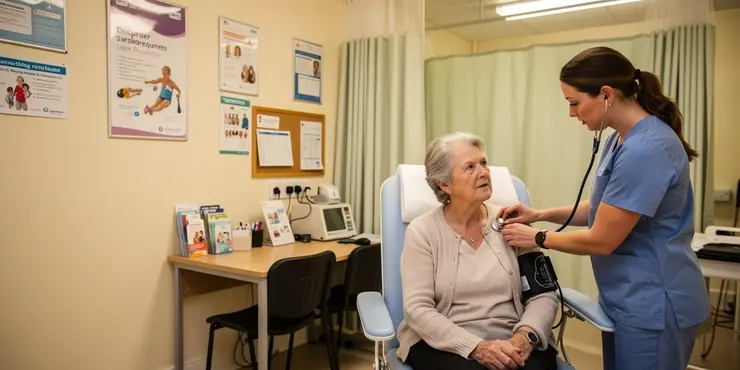
Is it safe to sleep after a concussion?
Relevance: 33%
-
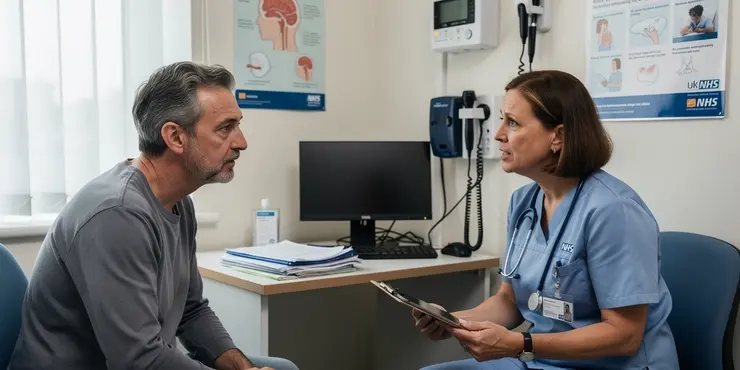
What is sleep apnea?
Relevance: 32%
-
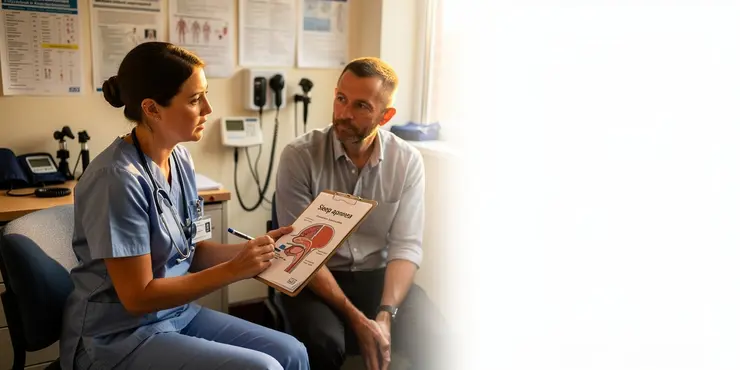
What is sleep apnoea?
Relevance: 32%
-
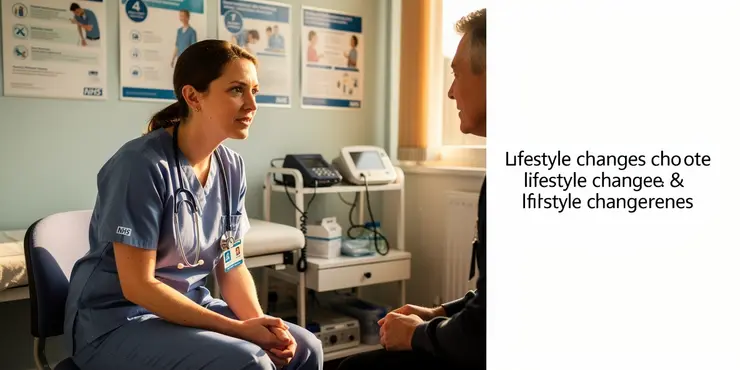
What lifestyle changes can help manage sleep apnea?
Relevance: 32%
-
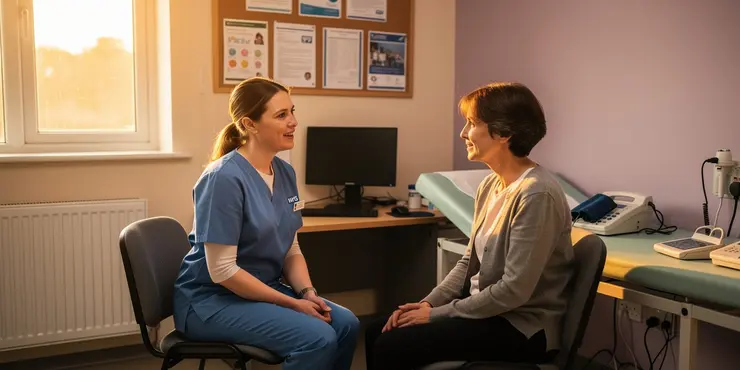
Why is sleep apnea dangerous?
Relevance: 32%
-
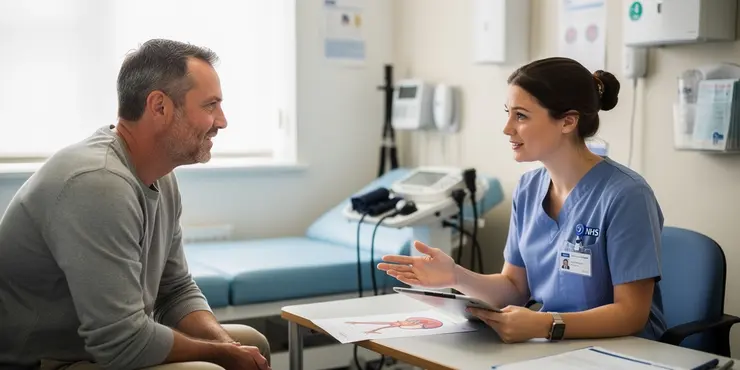
AAA (Abdominal aortic aneurysm) screening
Relevance: 30%
-
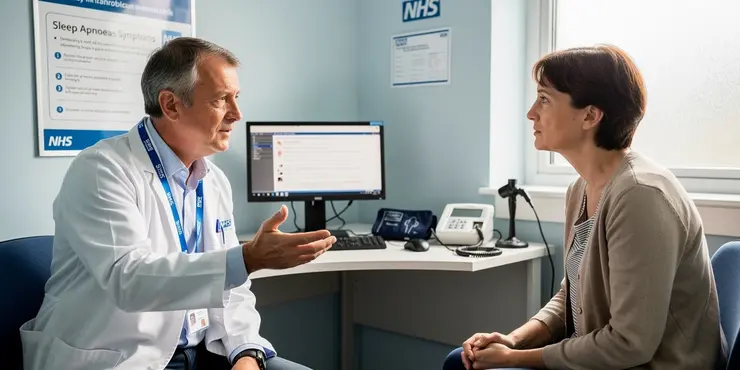
What are common symptoms of sleep apnea?
Relevance: 30%
-
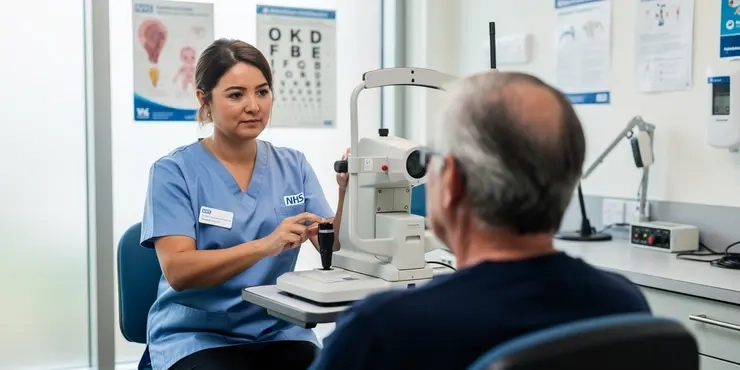
Derbyshire Diabetic Eye Screening - Diabetic Eye Screening
Relevance: 30%
-
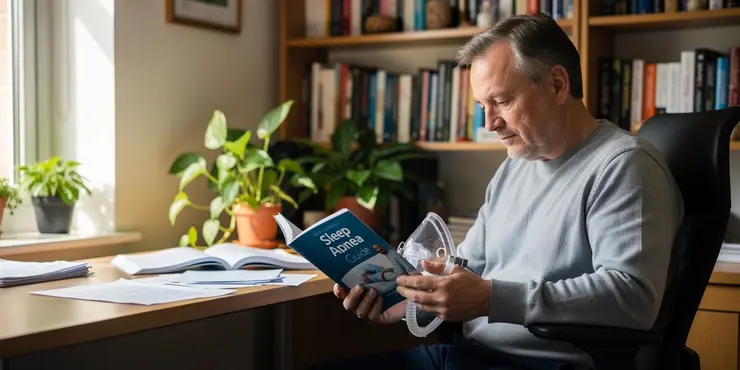
What is complex sleep apnea syndrome?
Relevance: 30%
-
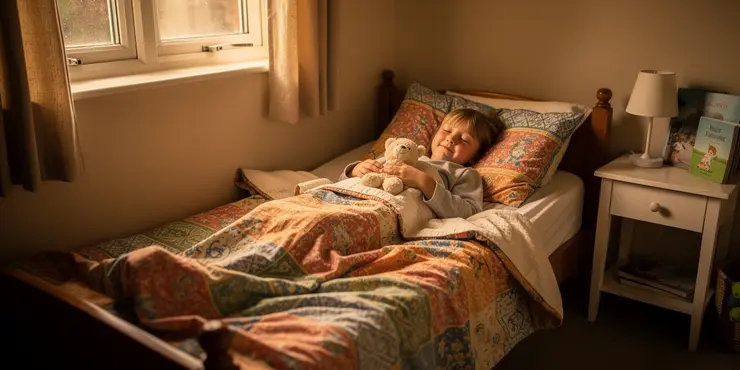
Can children have sleep apnea?
Relevance: 30%
-
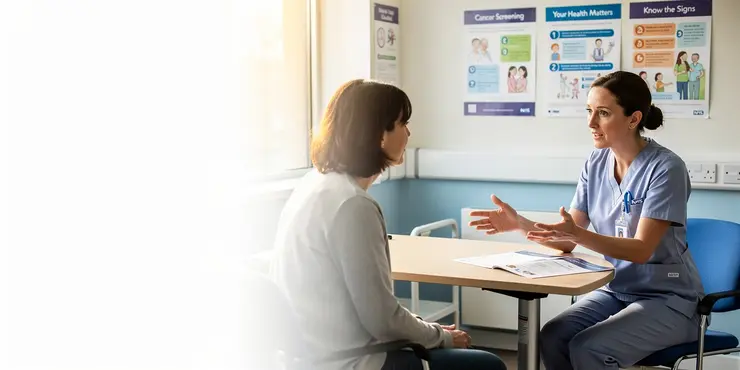
What is cancer screening?
Relevance: 30%
-
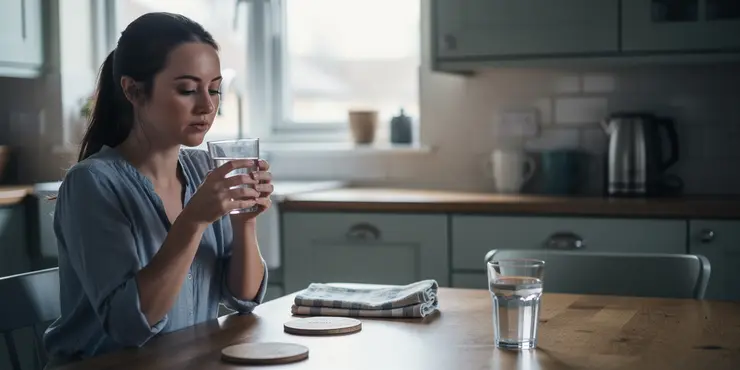
Is binge drinking more common in any specific demographic?
Relevance: 29%
-
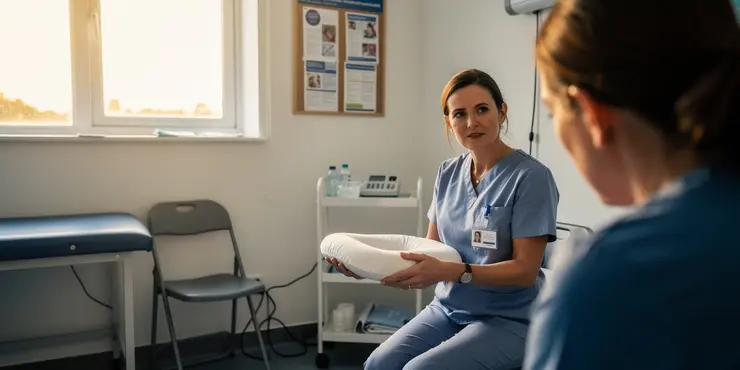
Are there any benefits to using baby sleep pillows?
Relevance: 29%
-
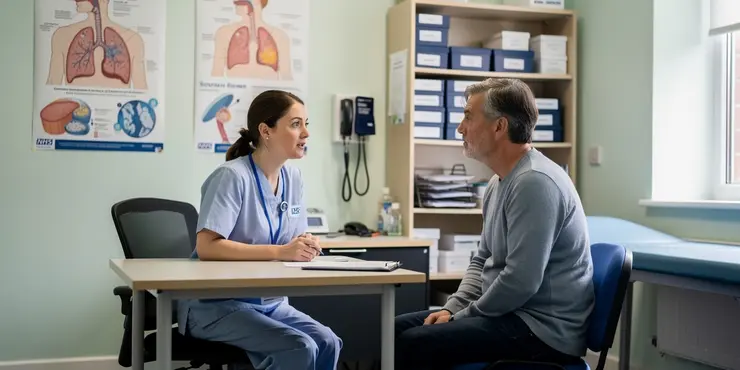
Is snoring always a sign of sleep apnea?
Relevance: 29%
-
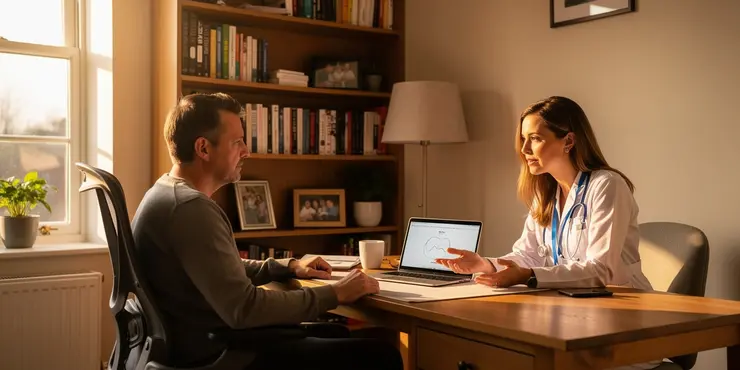
How is sleep apnea diagnosed?
Relevance: 29%
-
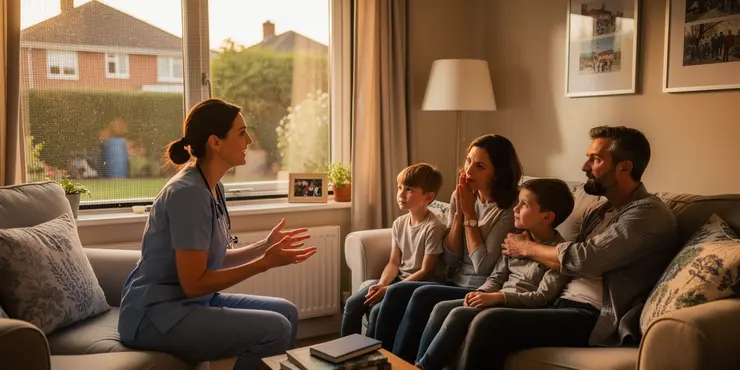
Are mosquito window screens effective in the UK?
Relevance: 29%
-
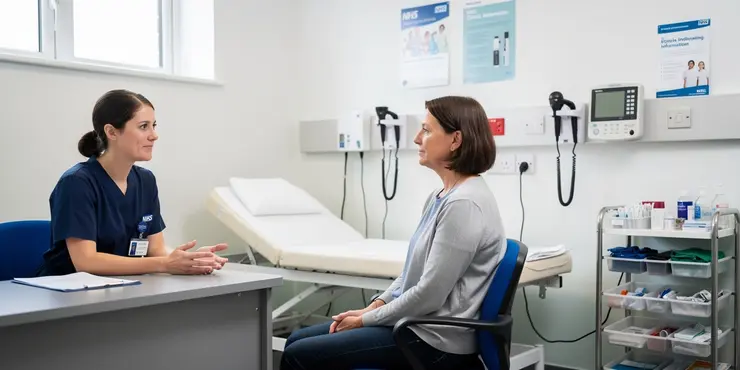
What is complex sleep apnea syndrome?
Relevance: 29%
-
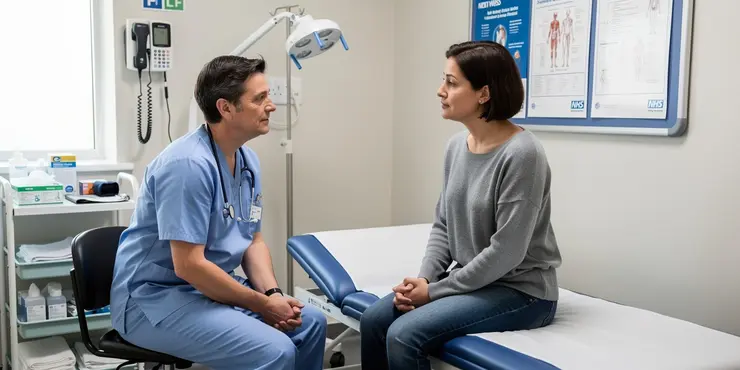
What should I do if I suspect I have sleep apnea?
Relevance: 29%
Impact of Screen Time on Sleep Quality
The advent of digital devices and their increased usage has brought significant changes to daily habits, particularly impacting sleep patterns across various age groups. In the UK, concerns have grown over the detrimental effect of excessive screen time on sleep quality, raising awareness about the health implications of prolonged exposure to electronic devices.
Adolescents: The Most Affected Demographic
Among different demographic groups, adolescents in the UK have exhibited the most significant change in sleep quality due to screen time. This demographic's substantial reliance on digital technology for social interaction, entertainment, and education has led to increased exposure to screens. Studies have shown that adolescents who engage more with digital screens, especially before bedtime, tend to experience poorer sleep quality.
The blue light emitted by screens can interfere with the production of melatonin, the hormone responsible for regulating sleep. This disruption is particularly influential among adolescents, who are already navigating hormonal changes that naturally affect their sleep cycles. As a result, many adolescents are experiencing delayed sleep phases, resulting in insufficient sleep and daytime fatigue.
Related Factors and Implications
In addition to biological factors, lifestyle choices also play a role. The widespread use of smartphones and other digital devices for activities like social media, gaming, and streaming has blurred the lines between day and night, complicating the ability for adolescents to maintain a healthy sleep routine. This excessive screen time not only delays sleep onset but also shortens total sleep duration.
The implications of poor sleep quality among UK adolescents are far-reaching. Sleep deprivation has been associated with various issues, including decreased academic performance, poor mental health, and increased susceptibility to mood disorders such as anxiety and depression. These challenges underscore the urgency of addressing screen time habits to foster better sleep quality among this age group.
Encouraging Healthier Habits
To mitigate the adverse effects of screen time on sleep, health experts suggest several strategies geared towards adolescents and their families. Establishing a digital curfew, promoting screen-free bedtime routines, and encouraging awareness of screen time limits are effective measures. Schools and parents are encouraged to educate young individuals about balancing screen time with other activities that support overall well-being.
As the conversation around digital health continues to evolve, it is crucial to address the specific needs of adolescents, ensuring that they are equipped with the tools to maintain healthy sleep habits in a digital age. By fostering awareness and promoting healthier screen time practices, we can help improve sleep quality and overall health outcomes for the UK's youth.
How Screens Affect Our Sleep
Lots of people in the UK use phones, computers, and tablets a lot. This change in how we live is making people sleep worse.
Teens: Most Affected by Screens
Teens in the UK are not sleeping well because of screen time. They use screens for chatting, fun, and school. When teens use screens before bedtime, they sleep badly.
Screens give off blue light. This blue light stops the body from making melatonin. Melatonin helps us sleep. Teens have a hard time sleeping because they are growing and changing. This means they don’t get enough sleep, and they feel tired in the day.
Why It Matters
How we live also affects sleep. Teens use phones and tablets for social media, games, and videos. This makes it hard to keep a good sleep routine. Too much screen time makes it hard to fall asleep and reduces sleep time.
Not sleeping well makes things hard for teens. It can make schoolwork harder and affect mental health. Teens might feel anxious or sad. It is important to help teens use screens less so they can sleep better.
Helping Teens Sleep Better
Experts have some ideas to help. They say it helps to: have a time to turn off screens, not use screens before bed, and learn about screen time limits. Schools and parents should teach teens how to balance screen time with other healthy activities.
We need to talk about digital health to help teens. By using these ideas, we can help teens sleep better and stay healthy.
Frequently Asked Questions
What demographic experienced the most change in sleep quality due to screen time?
Teenagers have shown the most significant change in sleep quality due to increased screen time.
Which age group is most affected by screen time in terms of sleep quality?
Teenagers are the most affected age group when it comes to the impact of screen time on sleep quality.
Are children affected by screen time in relation to sleep quality?
Yes, children are affected, but teenagers show more significant changes in sleep quality due to screen time.
How does screen time before bed affect teenagers?
Screen time before bed can cause significant disruptions in teenagers' sleep patterns and reduce overall sleep quality.
Which gender among teenagers shows more change in sleep quality due to screen time?
Both genders are affected, but research shows slight variations in how screen time impacts sleep quality among male and female teenagers.
Does increased screen time affect the sleep quality of adults significantly?
While adults are affected as well, teenagers experience more pronounced changes in sleep quality due to screen time.
Are young adults as affected by screen time as teenagers?
Young adults are affected by screen time, but not as significantly as teenagers in terms of sleep quality.
Does limiting screen time help improve teenage sleep quality?
Yes, reducing screen time, especially before bed, can help improve sleep quality for teenagers.
At what time should teenagers stop using screens to maintain good sleep quality?
It is recommended that teenagers avoid screens at least an hour before bed to maintain better sleep quality.
Why are teenagers more affected by screen time than other demographics?
Teenagers are more affected due to their high engagement with digital devices and their sensitivity to light and stimulation before bed.
What technologies are mainly responsible for changes in teenagers' sleep quality?
Smartphones, tablets, and computers are the main technologies impacting teenagers' sleep quality.
Do sleep issues in teenagers due to screen time correlate with mental health issues?
Yes, poor sleep quality can exacerbate mental health issues, and excessive screen time is linked to increased anxiety and depression in teenagers.
How does blue light from screens affect sleep quality in teenagers?
Blue light from screens can suppress melatonin production, making it difficult for teenagers to fall asleep.
What are common sleep disorders in teenagers due to increased screen time?
Common sleep disorders include insomnia, delayed sleep phase syndrome, and disrupted sleep patterns.
Has the COVID-19 pandemic affected teenagers' screen time and sleep quality?
Yes, the pandemic has increased screen time and negatively impacted sleep quality in teenagers.
What can parents do to help improve their teenagers' sleep quality?
Parents can encourage healthy screen habits, set digital curfews, and promote good sleep hygiene.
Do any studies show improvements in sleep quality when teenagers reduce screen time?
Yes, studies indicate that reducing screen time can lead to notable improvements in sleep quality for teenagers.
Is there a recommended amount of screen time for teenagers to maintain good sleep quality?
Experts recommend that teenagers limit recreational screen time to no more than two hours per day to maintain better sleep quality.
What role do social media platforms play in affecting sleep quality in teenagers?
Social media platforms can cause increased anxiety and overstimulation, leading to poorer sleep quality in teenagers.
Are sleep tracking apps on smartphones helping teenagers improve sleep quality?
While sleep tracking apps can raise awareness, they may also contribute to screen time before bed, affecting sleep quality.
Who had the biggest change in how well they sleep because of using screens?
Teenagers are sleeping differently because they are spending more time on screens like phones and computers. This change is the biggest in teenagers.
Who has the most trouble sleeping because of using screens?
Teenagers have the biggest problems with sleep because they spend a lot of time looking at screens.
Do screens affect how well kids sleep?
Using screens like phones and tablets might change how well kids sleep.
Helping tools:
- Set a bedtime for screens. Turn them off an hour before sleep.
- Create a calming bedtime routine.
- Read a book or tell a story before bed.
Yes, kids are affected. But older kids and teenagers have bigger problems with sleep because they use screens a lot.
What happens if teenagers look at screens before bed?
Looking at screens before going to sleep can make it hard for teenagers to fall asleep.
Screens, like phones or tablets, have bright lights. These lights can trick the brain into thinking it's still daytime.
When it's hard to sleep, teenagers might feel tired the next day. This can make it hard to pay attention in school.
Try to stop using screens at least one hour before bedtime. Instead, read a book or listen to calm music. This can help the brain get ready to sleep.
Looking at screens before bed can make it hard for teenagers to sleep well.
Do boys or girls sleep worse from using screens too much?
Boys and girls both have trouble with too much screen time. Research shows it might affect boys and girls a little differently. Screen time can change how well they sleep.
Does looking at screens a lot change how well adults sleep?
Teenagers are more affected by screen time when it comes to sleeping than adults. It changes their sleep a lot.
Do screens affect young adults like they do teenagers?
Do young people who are just a bit older than teenagers feel the same effects from using screens? This could mean things like feeling tired, finding it hard to focus, or getting headaches.
To help, you can:
- Take breaks from screens every hour.
- Use apps that remind you to rest your eyes.
- Talk to someone about how screen time makes you feel.
Young adults spend time looking at screens. This can affect their sleep. But it is not as bad for them as it is for teenagers.
Can less screen time help teens sleep better?
Yes, spending less time using screens, especially before going to sleep, can help teenagers sleep better.
What time should teenagers turn off screens to sleep well?
Teenagers should stop using screens, like phones or tablets, one hour before bedtime. This helps them sleep better.
Why do screens affect teenagers more than others?
Teenagers are still growing up. Their brains and bodies are changing. This means they can be more sensitive to things like screens.
Teenagers use phones, tablets, and computers a lot. Too much screen time can make them tired, make it hard to sleep, or make them feel worried.
It's important to take breaks, get outside, and talk to friends face-to-face.
Talking to an adult or a doctor can help if screen time feels hard to manage.
Teenagers use phones and computers a lot. This can make it hard for them to sleep because the lights and activity keep their brains awake.
What technologies affect how well teenagers sleep?
Smartphones, tablets, and computers can make it harder for teenagers to sleep well.
Do Staying Up Late with Screens Make Teenagers Feel Sad or Stressed?
Do teenagers have trouble sleeping because they look at screens? And does this make them feel sad or worried later?
If you have trouble reading, try using pictures or short videos to help explain. Ask an adult or teacher for help too.
Yes, sleeping badly can make mental health problems worse. Spending too much time looking at screens can make teenagers feel more anxious and sad.
How do screens with blue light affect teenagers' sleep?
Screens, like phones and tablets, give off blue light.
Blue light can make it hard for teenagers to sleep well.
Try these tips to sleep better:
- Turn off screens 1 hour before bed.
- Use night mode on devices to cut down blue light.
- Wear special glasses that block blue light.
Blue light from screens can stop a chemical called melatonin, which helps teenagers sleep. This makes it hard for them to fall asleep.
What sleep problems do teenagers have when they use screens a lot?
Teenagers are using phones, tablets, and computers more. This can cause sleep problems. Let's look at some common sleep issues:
- Not Enough Sleep: Many teens stay up late on screens and don't get enough sleep.
- Hard to Fall Asleep: Blue light from screens can make it hard to fall asleep.
- Waking Up at Night: Teens may wake up in the night if they use screens before bed.
To help, try these tips:
- Limit screen time before bed.
- Use tools like blue light filters on screens.
- Keep a regular sleep schedule.
Some sleep problems are hard to sleep, going to bed late and waking up late, and waking up often during the night.
Did COVID-19 change how much time teens use screens and how well they sleep?
Yes, because of the pandemic, kids and teenagers are spending more time on screens. This is making it harder for them to sleep well.
How can parents help their teenagers sleep better?
Here are some simple things parents can do to help their teenagers get better sleep:
- Make a bedtime routine. This means going to bed and waking up at the same time every day.
- Keep the bedroom quiet, dark, and cool at night.
- Limit screen time before bed. This means turning off phones, tablets, and TVs at least 30 minutes before bedtime.
- Encourage relaxing activities before bed, like reading a book or listening to calm music.
- Talk with your teenager about their day. This can help them feel calm and ready to sleep.
Tools that might help:
- A sleep mask to block out light.
- A white noise machine to cover noises that might wake them up.
- A fan to keep the room cool at night.
Parents can help kids use screens in a healthy way, set times to turn off screens, and help them sleep well.
Can cutting down screen time help teenagers sleep better?
Are there any studies that say teenagers sleep better if they spend less time on screens?
Techniques like setting a timer for screen use or using apps that remind you to take breaks can help manage screen time better.
Yes, research shows that using screens less can help teenagers sleep better.
How much screen time should teenagers have for a good night's sleep?
It is important for teenagers to sleep well. Looking at screens too much can make it hard to sleep. It is good to have limits on screen time before bed.
Here is a tip: Try to stop using phones, tablets, or computers 1 hour before going to sleep. This can help with better sleep.
Using blue light filters on screens can also help. This makes screens easier on the eyes at night.
Experts say that teenagers should only use screens for fun for no more than two hours each day. This can help them sleep better.
How do social media apps affect how well teenagers sleep?
Social media apps are places like Instagram, TikTok, and Facebook.
Teenagers are kids between 13 and 19 years old.
Looking at phones or tablets before bed can make it hard to fall asleep.
Bright screens can trick the brain into thinking it is still daytime.
Being online at night can keep the brain busy and awake.
Try these tips for better sleep:
- Turn off screens 1 hour before bedtime.
- Read a book or listen to calming music before sleep.
- Use apps that change screen colors to softer tones at night.
- Keep a regular sleep schedule: go to bed and wake up at the same time every day.
Using social media like Facebook or Instagram can make teenagers feel worried and excited. This can make it harder for them to sleep well.
Suggestions to help: Set a time to turn off phones and computers an hour before bed. Try reading a book or listening to calming music instead.
Do apps that track sleep on phones help teenagers sleep better?
Sleep tracking apps can help you learn about your sleep. But looking at screens before bed can make it harder to sleep well.
Useful Links
This website offers general information and is not a substitute for professional advice.
Always seek guidance from qualified professionals.
If you have any medical concerns or need urgent help, contact a healthcare professional or emergency services immediately.
Some of this content was generated with AI assistance. We’ve done our best to keep it accurate, helpful, and human-friendly.
- Ergsy carfully checks the information in the videos we provide here.
- Videos shown by Youtube after a video has completed, have NOT been reviewed by ERGSY.
- To view, click the arrow in centre of video.
- Most of the videos you find here will have subtitles and/or closed captions available.
- You may need to turn these on, and choose your preferred language.
- Go to the video you'd like to watch.
- If closed captions (CC) are available, settings will be visible on the bottom right of the video player.
- To turn on Captions, click settings .
- To turn off Captions, click settings again.
More Items From Ergsy search
-

What demographic showed the most significant change in sleep quality due to screen time?
Relevance: 100%
-

What is the main finding of the study linking screen time to sleep quality?
Relevance: 85%
-

Can reducing screen time improve sleep quality?
Relevance: 84%
-

How does screen time affect sleep quality?
Relevance: 84%
-

Study Shows Link Between Screen Time and Sleep Quality
Relevance: 84%
-

Does screen time impact REM sleep?
Relevance: 70%
-

Is blue light from screens a factor in affecting sleep quality?
Relevance: 67%
-

Are there any screen time guidelines recommended for improving sleep?
Relevance: 66%
-

Is there a difference in screen time impact on sleep between weekdays and weekends?
Relevance: 66%
-

Does screen time affect both sleep onset and sleep maintenance?
Relevance: 66%
-

What are some tips for reducing screen time to improve sleep?
Relevance: 64%
-

Are children more affected by screen time in relation to sleep than adults?
Relevance: 63%
-

What is the role of parental monitoring in children's screen time and sleep?
Relevance: 58%
-

What are some long-term effects of poor sleep quality linked to screen time?
Relevance: 56%
-

How does screen time before bed specifically affect adolescents?
Relevance: 53%
-

Do mitigation strategies like blue light glasses help improve sleep quality?
Relevance: 52%
-
How does sleep quality relate to menopause symptoms?
Relevance: 50%
-

The Importance of Sleep for All Ages
Relevance: 38%
-

What demographic factors influence changes to the state pension age?
Relevance: 37%
-

Top Tips to Help You Get a Good Nights Sleep
Relevance: 37%
-

How common is sleep apnea?
Relevance: 35%
-

Can alcohol worsen sleep apnea?
Relevance: 33%
-

Is it safe to sleep after a concussion?
Relevance: 33%
-

What is sleep apnea?
Relevance: 32%
-

What is sleep apnoea?
Relevance: 32%
-

What lifestyle changes can help manage sleep apnea?
Relevance: 32%
-

Why is sleep apnea dangerous?
Relevance: 32%
-

AAA (Abdominal aortic aneurysm) screening
Relevance: 30%
-

What are common symptoms of sleep apnea?
Relevance: 30%
-

Derbyshire Diabetic Eye Screening - Diabetic Eye Screening
Relevance: 30%
-

What is complex sleep apnea syndrome?
Relevance: 30%
-

Can children have sleep apnea?
Relevance: 30%
-

What is cancer screening?
Relevance: 30%
-

Is binge drinking more common in any specific demographic?
Relevance: 29%
-

Are there any benefits to using baby sleep pillows?
Relevance: 29%
-

Is snoring always a sign of sleep apnea?
Relevance: 29%
-

How is sleep apnea diagnosed?
Relevance: 29%
-

Are mosquito window screens effective in the UK?
Relevance: 29%
-

What is complex sleep apnea syndrome?
Relevance: 29%
-

What should I do if I suspect I have sleep apnea?
Relevance: 29%


